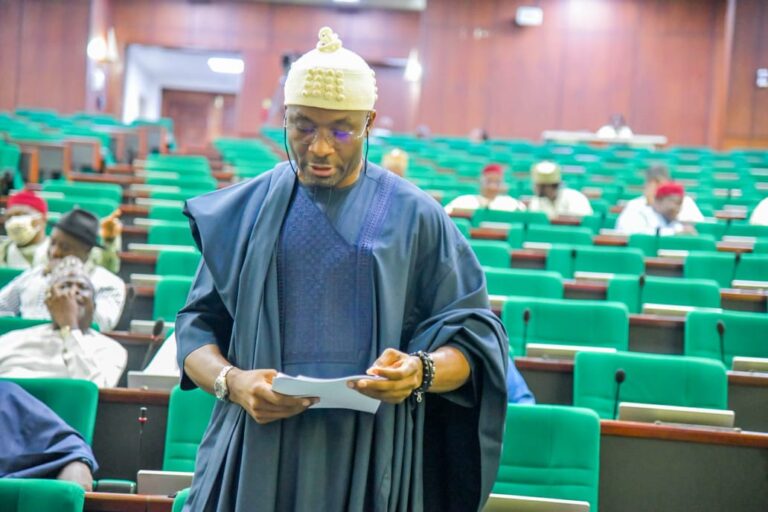In efforts to intensify the fight against corruption in Nigeria, the bill to establish the Office of National Inspector General for Tax Crime Commission sponsored by the Member representing Bende Federal Constituency and Chairman, House Committee on Media and Public Affairs, Rep. Benjamin Kalu has passed through Second Reading.
According to Rep. Kalu, the bill seeks to establish a system for the independent oversight of revenue collection authorities in Nigeria with the aim of promoting the economy, efficiency and effectiveness in the administration of revenue laws, leakages, expansion of the tax net, ensuring accountability in the tax system as well as protecting the rights of taxpayers.
He added that the bill seeks to address revenue leakages rising from the non-payment and underpayment of taxes, and irregularities in the assessment, reporting, and remittances of taxes with a view to combating tax-related crimes.
In his lead debate, Rep. Kalu stated that:
”The amount of revenue available to any government determines the extent to which such government may be able to provide public goods and services. It is a pointer to how far a nation can ensure its growth and development. While taxation is the most important means of generating public revenue, it is worthy of note that nations that strive to develop aim at putting in place a fair, just, efficient, and simplified tax administration system that builds confidence amongst the citizens and as well motivates and encourage citizens to pay their taxes.”
“It is one thing to fix the amount of taxes to be paid, it is another for tax collection authorities and assessors to determine the right amount of taxes to be paid in accordance with the provisions of extant tax laws.”
“Leakages occur where unscrupulous staff and agents of tax authorities collude with citizens to under assess the tax-payer thereby resulting in underpayment. Leakages also occur in the form of tax evasion, especially such that is encouraged and condoned by the tax collector and more especially among multinational companies operating within the country. Leakages also occur where there is non-remittance of collected taxes, that is to say where the government does not have access to the total amount of taxes collected because of revenue diversion by the fraudulent staff of tax authorities. The list is endless.
Mr. Speaker, Honourable Colleagues, this Bill seeks to establish the National Inspector-General for Tax Crimes Commission to promote economic efficiency and effective tax administration system, detect and deter evasion, fraud, and abuse in Nigeria’s tax administration system, and protect tax payer’s rights, comprises of thirty-five (35) clauses divided into seven (7) parts and a schedule.
The bill which was first read on the 20th of December 2019 was supported by the lawmakers and passed through its second reading

